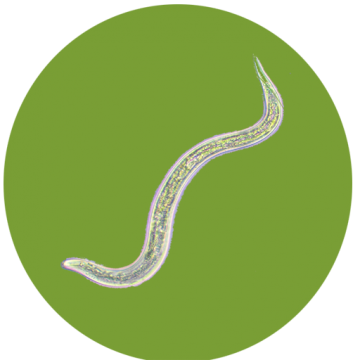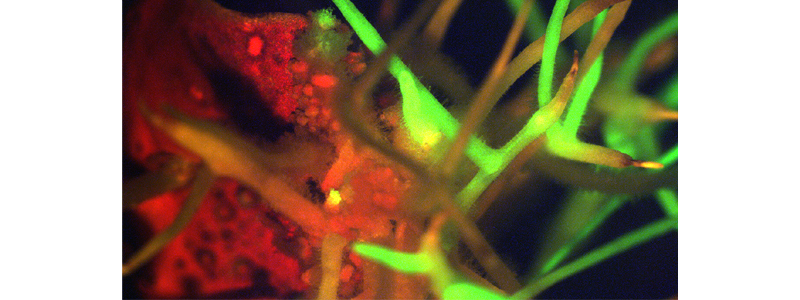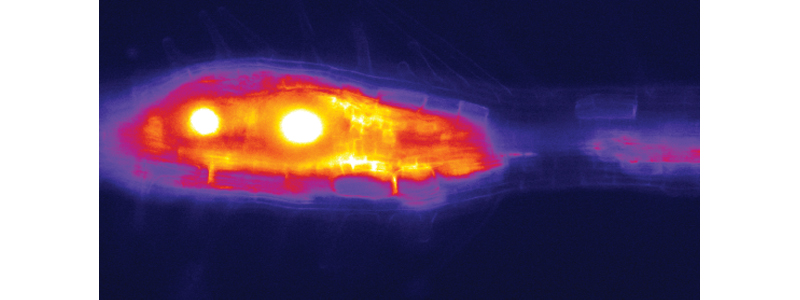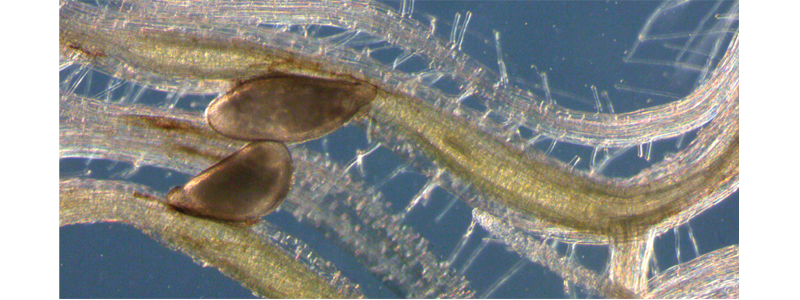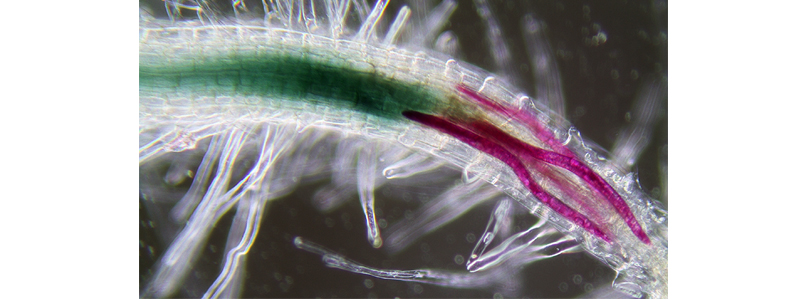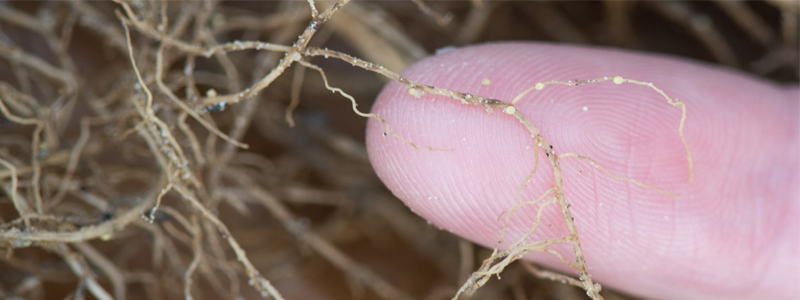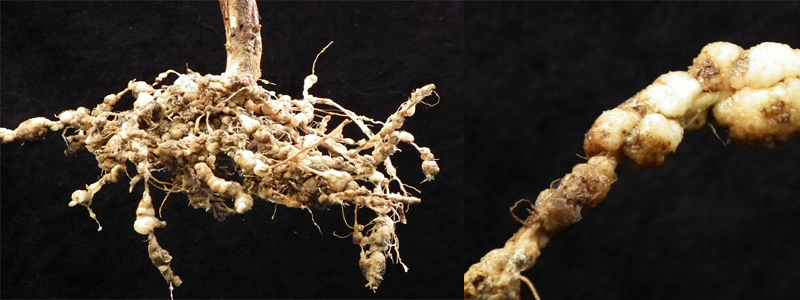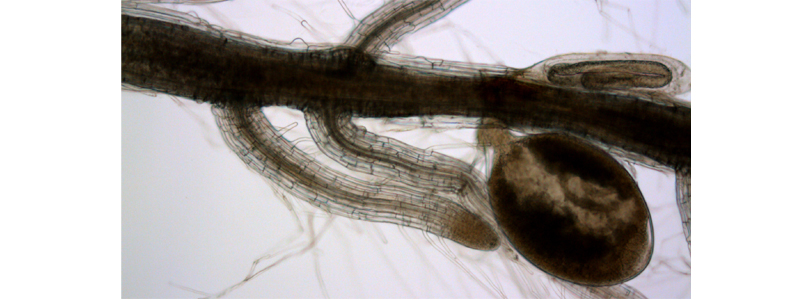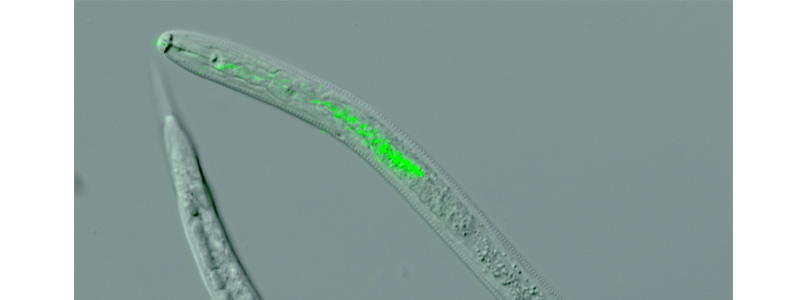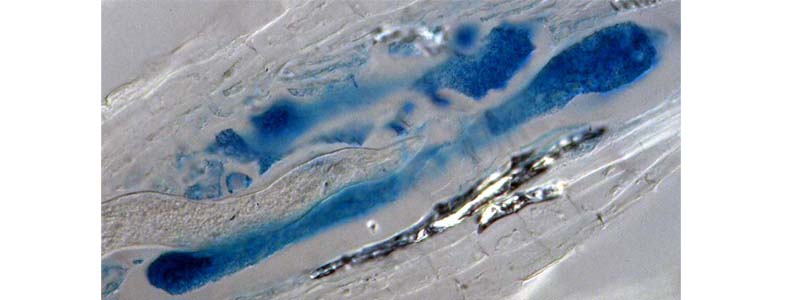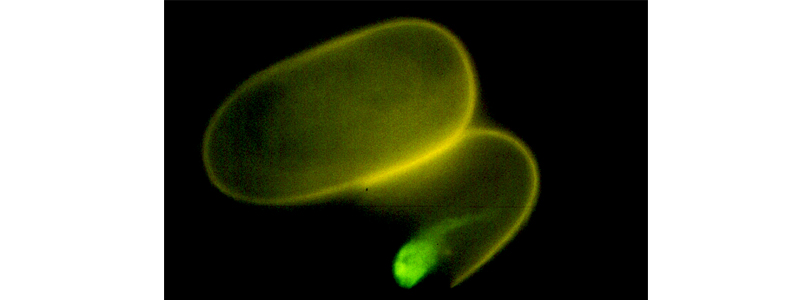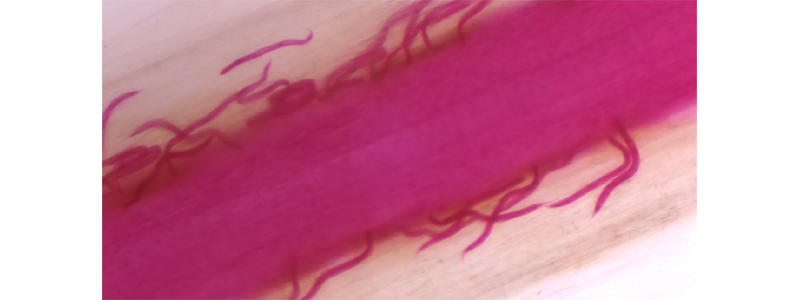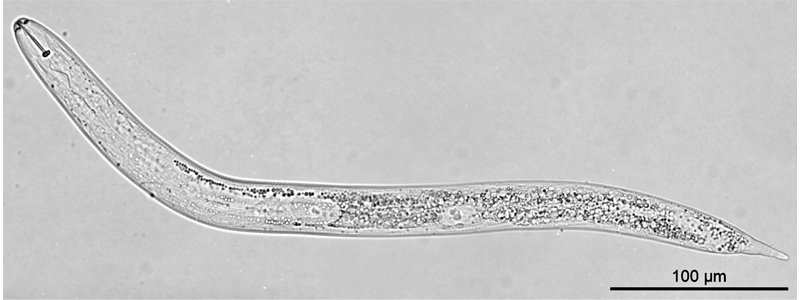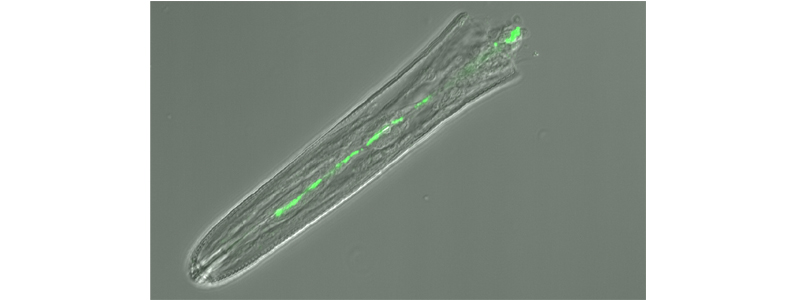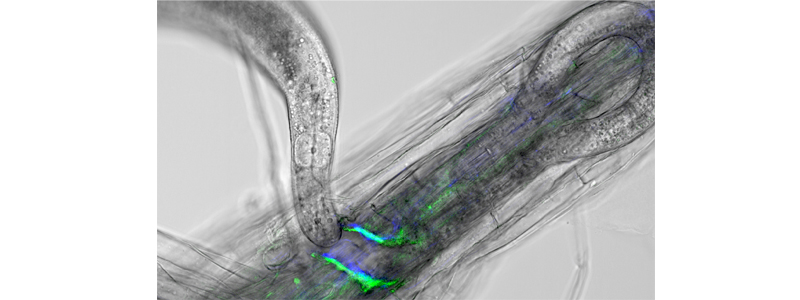Welcome to the Mitchum Lab
The Mitchum Lab is affiliated with the Department of Plant Pathology and Institute of Plant Breeding, Genetics, and Genomics in the College of Agricultural and Environmental Sciences (CAES) at the University of Georgia, and a member of The Plant Science Center. Graduate students can join through the Department of Plant Pathology, Institute of Plant Breeding, Genetics, and Genomics (IPBGG), or the Integrated Plant Sciences (IPS) Program.
Research Overview
Plant-parasitic nematodes (PPNs) cause billions of dollars in annual yield losses and represent a major impediment to meeting the challenge of feeding a population projected to reach 9 billion by 2050. Our lab studies plant-nematode interactions with an emphasis on the sedentary endoparasitic cyst and root-knot nematodes, two of the most economically important groups of PPNs. These nematodes form parasitic relationships with host plants by establishing permanent feeding sites within the root. The feeding site serves as the sole nutritive source for the nematode to complete its life cycle at the expense of the host. We seek to understand the molecular mechanisms underlying nematode parasitism of host plants and determine how some plants are able to resist infection by nematodes.
We use a diverse array of approaches from single cell to whole organism (nematode and plant). These include standard molecular biology, biochemistry and plant nematology approaches, as well as more modern ‘omics, CRISPR genome editing, and high-throughput plant phenotyping approaches. Current pathosystems include cyst and root-knot nematodes on soybean and corn. We also utilize the model plant Arabidopsis to accelerate our studies to dissect the molecular basis of parasitism by these nematodes.
Our research is focused in the areas of nematode effector biology developmental reprogramming of host root cells via plant peptide hormone mimicry and elucidating the molecular basis of plant resistance and nematode virulence. Our research program, which integrates studies on both the plant and nematode side of the interaction, has practical significance to plant breeders and the potential for engineering novel forms of plant resistance to nematodes. Consequently, we collaborate closely with UGA plant breeders to develop high yielding, cyst and root-knot nematode resistant varieties and are making efforts to translate some of our basic discoveries to develop novel approaches for nematode resistance in crop plants.
Photo Credits: Current and Former Lab Members [Melissa Mitchum, Anju Verma, Nagabhushana Ithal, Carola de la Torre Dowd, Amy Replogle, Chris Lee, Xiaohong Liu] and Roger Meisse
